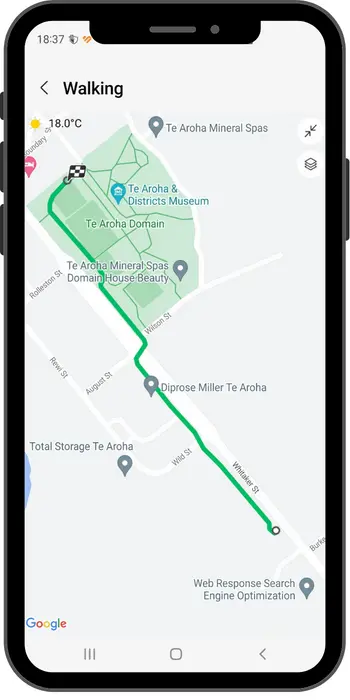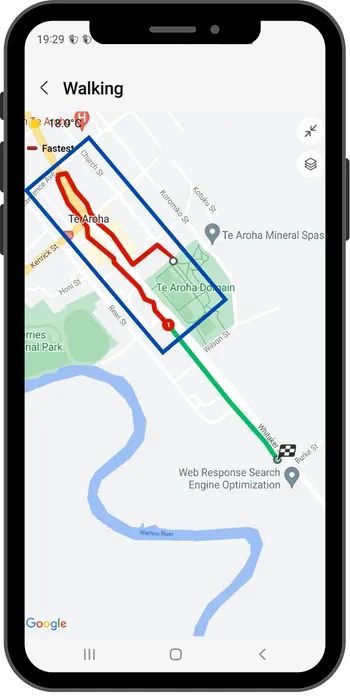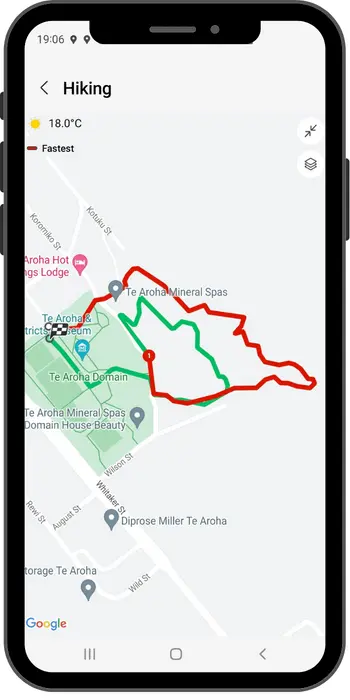Galaxy Watch 4 : Is The GPS Tracking Accurate?
The Samsung Galaxy Watch 4 is the latest addition to the Galaxy line of watches. It has 4 location sensors that use GPS/GLONASS/Beidou/Galileo to pinpoint your location. This is an increase over the many smart watch’s or trackers that’s on the market with just a GPS sensor. But does this increased accuracy translate into real-world performance? In this article, we will take a look at how accurate the Galaxy Watch 4 is and what factors might affect its accuracy.
What are the 4 Location Sensors in the Galaxy Watch 4 that Tracks your GPS tracking
As stated there are 4 location sensors built in to the Galaxy watch 4 that can pinpoint your location. Together they can work together and track you location very accurately. The four sensors are:
- GPS sensor : The GPS sensor is the most well known and is used by many devices to track location. It can connect to the American satellite navigation known as Global Positioning System. The GPS satellite navigation orbits all around the world. There is a total of 24 GPS satellites that the Galaxy Watch can connect to.
- GLONASS sensor : The GLONASS (which is Global Navigation Satellite System) sensor is the Russian version of GPS and is also used to track location. It can connect to a constellation of 27 GLONASS satellites that orbits around the world.
- Beidou sensor : The Beidou sensor is the Chinese version of GPS and is also used to track location. It can connect to a constellation of 35 Beidou satellites and only orbits above Chinese territories. Anyone who lives out side of china cannot connect to this satellite system.
- Galileo sensor : The Galileo sensor is the European version of GPS and is also used to track location. It can connect to a constellation of 30 Galileo satellites that orbits around the world.
With the exception of the Beidou satellite system they can all work together to pinpoint your location anywhere around the world. The Galaxy Watch 4 can connect to all these satellite systems and use them to accurately track your location.
What Factors can Affect GPS Tracking Accuracy
There are many factors that can affect the accuracy of the Galaxy Watch GPS tracking. Let’s take a look at some of those now:
- The number of satellites in view : The more satellites the Galaxy Watch has in view, the more accurate it can be. If you are in an area where there are a lot of tall buildings or trees, the number of satellites in view can be reduced and this can affect accuracy.
- The position of the satellite : The position of the satellite also affects accuracy. If the satellite is at the horizon, it can take longer to get a fix on your location.
- Atmospheric conditions : Atmospheric conditions can also affect accuracy. If there is bad weather, the signal from the satellite can be blocked or weakened and this can reduce accuracy.
Overall, the Samsung Galaxy Watch GPS tracking is accurate but there are some factors that can affect its accuracy. If you want the most accurate tracking possible, it is best to have a clear view of the sky and be in an open area.
First Test : Easy level – 100% alignment
The first test I did was a easy one. I chose a route where there is very little tall objects. And by reviewing the end result, the GPS tracking for the first test is very accurate. I was really impressed on how it tracked exactly my path,

Second Test : Hard Level – 100% alignment
In this next test I will be walking through the local township where there are tall buildings. Also, I will be walking under awnings too which should test the Galaxy Watch 4, but to my surprise it didn’t, and it tracked very nicely. I think the assisted GPS would have something to do with the accuracy.

Third Test : Very Hard Level – 100%
The third test is where I test the GPS tracking in the mountains. As I walk through the track I am surrounded by tall trees, mountain cliffs and thick over head bush. To my surprise the galaxy watch 4 did really well and tracked my path quite nicely for 100% alignment

Final Conclusion
Is the GPS tracking accurate for the Galaxy Watch 4?, well based on the tests that I have done the answer is yes. I would think that with the assisted GPS built in I think this had something to do with the tracking accuracy. With assisted GPS, the watch can tap in to other sources to connect to a satellite such as cell phone towers and nearby servers. We practically live in a more digital world so these types of resources are readily available to connect to satellites.
